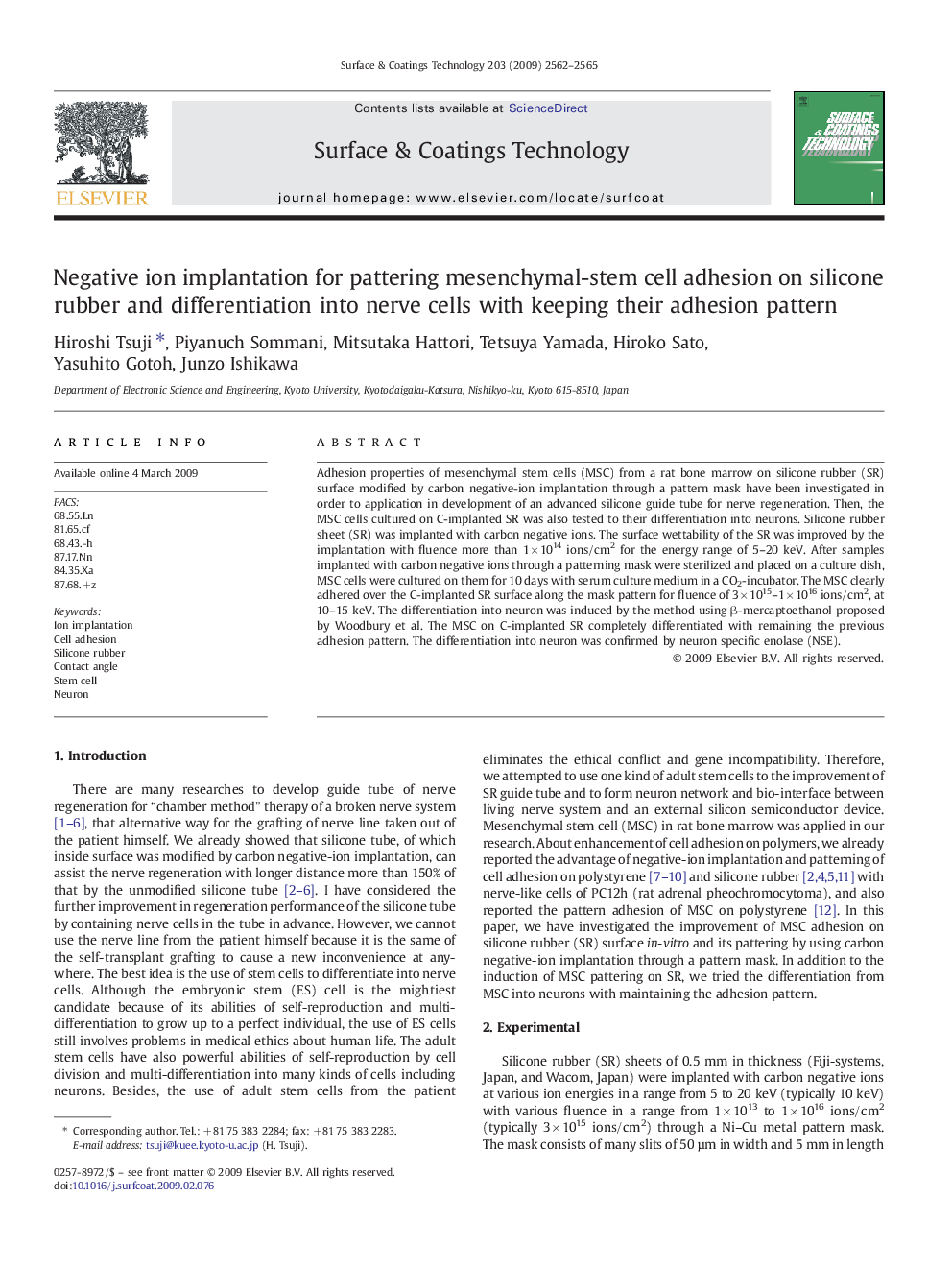| Article ID | Journal | Published Year | Pages | File Type |
|---|---|---|---|---|
| 1660177 | Surface and Coatings Technology | 2009 | 4 Pages |
Adhesion properties of mesenchymal stem cells (MSC) from a rat bone marrow on silicone rubber (SR) surface modified by carbon negative-ion implantation through a pattern mask have been investigated in order to application in development of an advanced silicone guide tube for nerve regeneration. Then, the MSC cells cultured on C-implanted SR was also tested to their differentiation into neurons. Silicone rubber sheet (SR) was implanted with carbon negative ions. The surface wettability of the SR was improved by the implantation with fluence more than 1 × 1014 ions/cm2 for the energy range of 5–20 keV. After samples implanted with carbon negative ions through a patterning mask were sterilized and placed on a culture dish, MSC cells were cultured on them for 10 days with serum culture medium in a CO2-incubator. The MSC clearly adhered over the C-implanted SR surface along the mask pattern for fluence of 3 × 1015–1 × 1016 ions/cm2, at 10–15 keV. The differentiation into neuron was induced by the method using β-mercaptoethanol proposed by Woodbury et al. The MSC on C-implanted SR completely differentiated with remaining the previous adhesion pattern. The differentiation into neuron was confirmed by neuron specific enolase (NSE).
